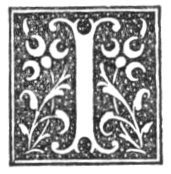
Sacred Texts Legends and Sagas Celtic Index Previous Next

"Homo sum: nihil humani a me alienum puto."
 |
their joys and hopes, with all their earnest endeavour and honest work, with all their devotion and self-denial, with all their loves and hatreds, with all their pain and misery. I have seen the sun go down, and the darkness creep over the lowlands and up the hill-sides, inch by inch, till only the hill-tops shone in purple splendour for a few minutes, and they too, then, were clad in darkness, and the stars came out one by one, larger and brighter than when seen from the plains. I have stood at midnight on the mountain-top, and heard only the dull sough of the wind, broken by the bark of the fox or the croak of the ptarmigan. I have guided my steps over its ridges by the midnight stars. Wrapped in a plaid, I have crouched beneath a stone on a bed of fresh heather, and have fallen asleep with the music of a Gaelic song and the murmur of the streams falling over the mountain side--the one the counterpart of the other--sounding in my ears. I have sat in the hut beside a blazing fire, and, amidst the roar of the tempest and the rush of swollen waters, listened at midnight to tales of witchcraft; of compacts with the Devil, of fightings with the same dark being, of the same being blowing to the four winds of Heaven wicked men, with their hut, their guns, and their dogs; of fair women and infants carried off by the fairies; of dead-candles, of death-warnings, of ghosts, and of all the terrible things of the realm of spirits, till an eerie feeling crept over me, and I began to question with myself whether such tales might not be true. I have taken my seat beside the reputed witch, in her dark turf hut, and, with the faint glimmering light of a small candle, witnessed her perform with her long skinny fingers her incantations. I have sailed the Firth in boat and in vessel, in sunshine and in storm, and I have listened to the tales of the fishermen and sailors as the ship rocked lazily under the falling darkness. The North, with its hills, and vales, and woods, and rocks, and streams, and lochs, and sea--with its fairies, and waterkelpies, and ghosts, and superstitions--with its dialect, and customs, and mariners, has become part of myself. Everything is changing, and changing faster than ever. The scream of the railway whistle is scaring away the witch,
and the fairy, and the waterkelpie, and the ghost. To give an account of the olden time in the North, as seen by myself and as related to me by the aged, is the task I have set before me. It is true some of what is related has not yet passed away. If I fall into error, I can only say, with the Roman comedian,
and with Richard Rolle de Hampole:--